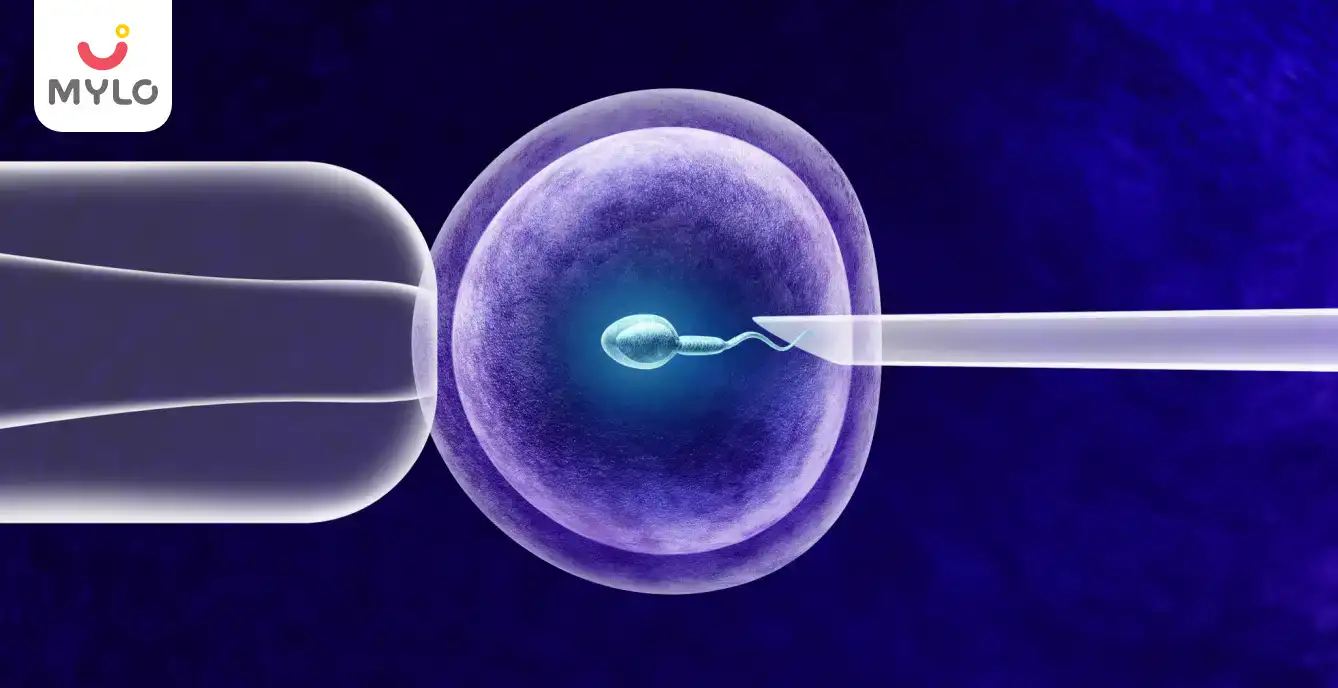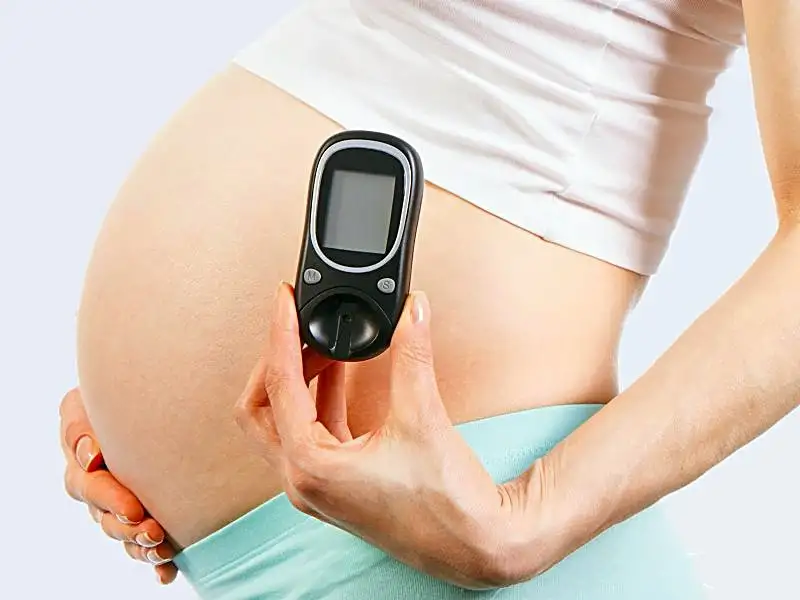Home

Conception

Can Sleep Deprivation Impact Fertility in Men & Women?
In this Article

Conception
Can Sleep Deprivation Impact Fertility in Men & Women?
Updated on 22 November 2022



Medically Reviewed by
Kusum Sabharwal
Obstetrician & Gynecologist - MBBS| DGO
View Profile

Whenever you and your partner make up your mind about planning a family, you'll be flooded with endless advice from friends and relatives like- exercise more, control your weight, avoid caffeine, smoking, and alcohol, take plenty of rest, don't stress, etc. While all these factors impact fertility in men and women, sleep does. Sleep deprivation can affect fertility in men and women and significantly affect their chances of conception. If insomnia or sleep deprivation is a problem, then sleeping more than 8 hours is also another sign of a health problem. Let us understand how sleep impacts conception and how to get adequate sleep.
Sleep Factors Affecting Conception
The following are the reasons why sleep is important for conception:
Reduction in essential hormones
Skimping on sleep reduces the amount of FSH (Follicle-stimulating hormone). Sleep deprivation or sleeping more than 9 hours can affect several other hormones in men and women, which helps in reproduction. Sleep deprivation and disruption can affect the trigger response of male and female hormones as they are linked to sleep patterns. As a result, sleep can affect fertility in men and women.
Impact on IVF success
Moderate sleepers (who sleep 7-8 hours) have the highest rate of pregnancy if the woman is undergoing IVF (In-vitro fertilization) as compared to short sleepers (who sleep 4-6 hours) and long sleepers (who sleep 9-11 hours a night). IVF is a lengthy and expensive fertility procedure, so it is essential to maintain a regular sleeping pattern along with a balanced diet and exercise as your doctor recommends.
Over usage of electronic gadgets
Spending countless hours on gizmos and gadgets can lead to sleep deprivation. It could be monotonous when your doctor advises you to take plenty of rest, but that doesn't mean you should be busy doing nothing and just swiping your smartphone or tablet to kill time. No doubt our lives depend on smartphones, but spending ample time with nature is equally essential if you wish to conceive. The radiation emitted from wi-fi, laptops, and smartphones harm your physical and mental health, which can impact your fertility. You must limit your work time and switch off the router and your mobile phone from the mains before hitting the bed.
How to get adequate sleep?
-
To get a good night's sleep, it is essential to eat a balanced diet, exercise correctly, and keep busy in your daily routine. It would help if you did not take the stress of petty issues because that can impact your menstrual and ovulation cycles. Poor sleep can badly affect fertility in both sexes.
- It is important to discuss everything with your partner. It would help if you let them know whatever is going on in your mind. Having a healthy conversation with your spouse makes you feel relaxed and strengthens your bond with them.
- You must avoid taking sleeping pills and never hide any details about your medication from your doctor or if you are undergoing any other treatment.
- Calm your unsettled mind, and make sure your bedroom is clean, dark, and hygienic.
- Make a bedtime routine- change and wear comfortable nightwear clothes, wash your face and feet and apply moisturizer. An everyday routine trains the brain and prepares subconsciously for a good night's sleep.
Summary
Good sleep is a sign of good health, but balance is crucial. Sleep is equally essential for fertility, and it is vital to maintain a healthy lifestyle while preparing to welcome your baby. Eat well. "A good laugh and sleep are the best cures for anything."
References
- Jehan S, Auguste E, Hussain M, Pandi-Perumal SR, Brzezinski A, Gupta R, Attarian H, Jean-Louis G, McFarlane SI. (2016). Sleep and Premenstrual Syndrome. NCBI
- Lateef OM, Akintubosun MO. (2020). Sleep and Reproductive Health. NCBI
- Kloss JD, Perlis ML, Zamzow JA, Culnan EJ, Gracia CR. (2015). Sleep, sleep disturbance, and fertility in women. NCBI





Medically Reviewed by
Kusum Sabharwal
Obstetrician & Gynecologist - MBBS| DGO
View Profile


Written by
Shaveta Gupta
An expert in content marketing, Shaveta is an alumnus of IIT, Bombay, she knows what the audience is looking for. Mother of a 6 year old, she has been instrumental in planning the content strategy at Mylo.
Read MoreGet baby's diet chart, and growth tips

Related Articles
RECENTLY PUBLISHED ARTICLES
our most recent articles

In Vitro Fertilization (IVF)
Which Is Better For You: IUI Or IVF?
Getting Pregnant
Are you wondering how to deal with infertility sadness? Here are 8 important tips that will help you out.
Travel & Holidays
Travel Tips to Follow During The First Trimester of Your Pregnancy

Blood Sugar Levels
Top 7 Diet Tips to Control Your Sugar Levels During Pregnancy

TV & OTT
Best Action Movies On Amazon Prime

Pregnancy
How can a pregnant woman get 6000?
- What Are the Common Tests You Will Have During Your Pregnancy?
- 4 week pregnancy discharge
- Frequently asked questions about milk production
- Is Maternity Leave 6 Or 9 Months?
- Top 5 Most Common Skin Care Myths Busted
- What are the Top Worries and Fears After Childbirth and How to Overcome Them
- Is It Really Essential for People to Wash Their Hands Before Holding a Newborn?
- Top 10 Hollywood Movies on Hotstar
- How Can You Easily Determine Using Seven Easy Homemade Remedies to Check if You’re Pregnant or Not?
- Best Crime Series On Amazon Prime
- Everything You Need to Know About Linea Nigra, the Line Around Your Belly
- Know Why Your Doctor May Change Your Due Date During Pregnancy
- 6 Ways to Protect Your Baby During Cold Season
- Are You Aware of These Warning Signs That You Should Be Careful of During Your First Trimester?


AWARDS AND RECOGNITION

Mylo wins Forbes D2C Disruptor award

Mylo wins The Economic Times Promising Brands 2022
AS SEEN IN
















- Mylo Care: Effective and science-backed personal care and wellness solutions for a joyful you.
- Mylo Baby: Science-backed, gentle and effective personal care & hygiene range for your little one.
- Mylo Community: Trusted and empathetic community of 10mn+ parents and experts.
Product Categories
baby carrier | baby soap | baby wipes | stretch marks cream | baby cream | baby shampoo | baby massage oil | baby hair oil | stretch marks oil | baby body wash | baby powder | baby lotion | diaper rash cream | newborn diapers | teether | baby kajal | baby diapers | cloth diapers |








